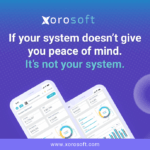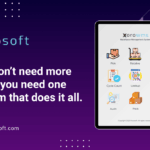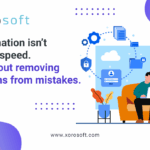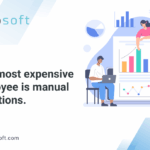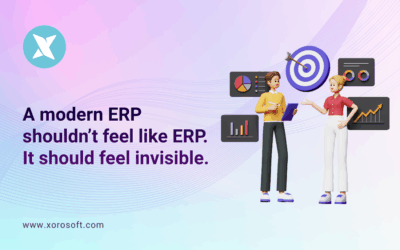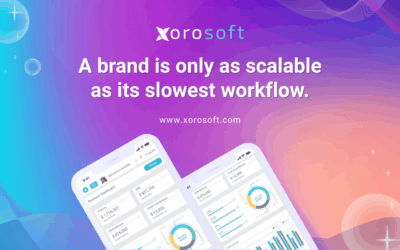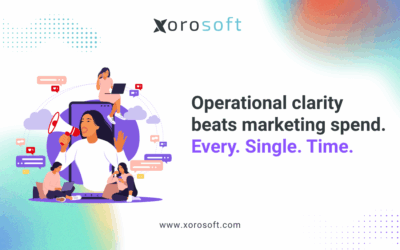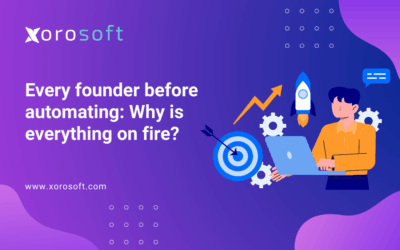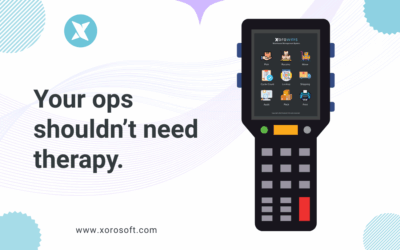
Introduction to ERP and CRM Systems
In today’s fast-paced business landscape, it is crucial for companies to leverage technology to streamline their operations and enhance customer relationships. Two popular software solutions that have emerged to meet these needs are Enterprise Resource Planning (ERP) systems and Customer Relationship Management (CRM) systems. While both serve distinct purposes, there is often confusion about their functionalities and how they differ. In this comprehensive guide, we will delve into the world of ERP and CRM systems, exploring their key features, benefits, and common challenges. By the end, you will have a clear understanding of these systems and be able to make an informed decision about which one is the right fit for your business.
Understanding ERP Systems
An ERP system is an integrated suite of applications that enables businesses to manage their core processes, such as finance, human resources, manufacturing, and supply chain management, in a centralized manner. By consolidating data from various departments and automating routine tasks, ERP systems provide real-time visibility into the entire organization’s operations. This holistic approach allows companies to optimize resource allocation, improve decision-making, and drive operational efficiency.
One of the key features of an ERP system is its ability to integrate different functions and departments within an organization. For example, the finance department can seamlessly share data with the sales and manufacturing departments, enabling a more accurate forecasting of cash flow and inventory levels. Moreover, ERP systems provide a single source of truth for data, eliminating the need for manual data entry and reducing the risk of errors.
Key Features and Benefits of ERP Systems
ERP systems offer a wide range of features that cater to the unique needs of businesses across various industries. These features include financial management, inventory control, supply chain management, human resources management, and customer relationship management. By leveraging these features, companies can streamline their operations, improve productivity, and gain a competitive edge in the market.
One of the significant benefits of ERP systems is improved data visibility and accessibility. With all data stored in a centralized database, employees can easily access the information they need, leading to faster decision-making and enhanced collaboration. Additionally, ERP systems provide real-time reporting and analytics capabilities, allowing businesses to gain valuable insights into their performance and make data-driven decisions.
Common Challenges with ERP Systems
While ERP systems offer numerous benefits, they are not without their challenges. One common challenge is the complexity of implementation and customization. The deployment of an ERP system requires careful planning, extensive testing, and user training to ensure a smooth transition. Moreover, customization to meet specific business requirements can be time-consuming and costly.
Another challenge is the resistance to change within an organization. Implementing an ERP system often entails redefining workflows and processes, which can be met with resistance from employees who are accustomed to the old way of doing things. To overcome this challenge, effective change management strategies, such as communication and training programs, should be put in place.
Introduction to CRM Systems
Moving on to CRM systems, these software solutions are designed to manage and improve customer interactions throughout the customer lifecycle. CRM systems enable companies to store customer data, track interactions, manage leads and opportunities, and automate marketing campaigns. By providing a 360-degree view of customer information, CRM systems empower businesses to deliver personalized experiences and build stronger relationships.
One of the key features of a CRM system is its ability to track and manage customer interactions across various touchpoints. Whether it’s through email, phone calls, social media, or in-person meetings, CRM systems capture and consolidate all customer interactions in a central database. This allows businesses to have a complete picture of their customers’ preferences, needs, and history, enabling more targeted marketing efforts and personalized sales pitches.
Key Features and Benefits of CRM Systems
CRM systems offer a multitude of features that help businesses streamline their sales, marketing, and customer service processes. These features include contact management, lead management, opportunity management, email marketing, campaign management, and customer service automation. By utilizing these features, companies can effectively manage their customer relationships and drive revenue growth.
One of the significant benefits of CRM systems is enhanced customer satisfaction. With a centralized database of customer information, businesses can quickly respond to customer inquiries, resolve issues promptly, and provide personalized support. CRM systems also enable companies to track customer preferences and purchase history, allowing them to tailor their offerings to individual customers’ needs and preferences.
Common Challenges with CRM Systems
While CRM systems offer significant advantages, they also come with their own set of challenges. One common challenge is data quality and data entry. To ensure accurate and reliable customer data, employees need to diligently enter information into the CRM system. Incomplete or incorrect data can lead to poor decision-making and ineffective marketing campaigns.
Another challenge is user adoption. Despite the benefits of CRM systems, some employees may resist using them due to the perception that they add extra work or invade their privacy. To overcome this challenge, it is crucial to provide comprehensive training, clearly communicate the benefits of the system, and involve employees in the decision-making process.
ERP vs. CRM: Key Differences and Similarities
Now that we have explored the key features and benefits of both ERP and CRM systems, let’s delve into their differences and similarities. While both systems aim to improve organizational efficiency and customer relationships, their focuses and functionalities vary.
Firstly, ERP systems primarily focus on managing internal processes and resources, such as finance, manufacturing, and supply chain management. On the other hand, CRM systems are centered around managing customer interactions, sales pipelines, and marketing campaigns. While ERP systems provide a holistic view of the entire organization, CRM systems offer a deep understanding of individual customers.
Despite their differences, ERP and CRM systems share some similarities. Both systems rely on a centralized database to store and manage data. They also offer reporting and analytics capabilities to gain insights into business performance. Moreover, integration between ERP and CRM systems is becoming increasingly common, as it allows companies to have a unified view of their operations and customer interactions.
Choosing the Right System for Your Business – Xorosoft ERP
When it comes to choosing the right system for your business, it is essential to evaluate your unique needs, industry requirements, and growth plans. While there are numerous ERP and CRM solutions available in the market, Xorosoft ERP stands out as a comprehensive solution that caters to businesses of all sizes and industries.
Xorosoft ERP offers a wide range of features, including financial management, inventory control, supply chain management, human resources management, and customer relationship management. With its user-friendly interface and customizable modules, Xorosoft ERP can be tailored to meet your specific business requirements. Moreover, Xorosoft provides excellent customer support and regular updates to ensure your system remains up-to-date and optimized.
Integrating ERP and CRM Systems
To harness the full potential of both ERP and CRM systems, many businesses opt to integrate them. Integration allows for seamless data flow between the two systems, providing a unified view of operations and customer interactions. For example, integrating ERP and CRM systems enables sales teams to access customer order history, inventory levels, and pricing information, streamlining the sales process and ensuring accurate quoting.
The integration of ERP and CRM systems also enables better forecasting and planning. By combining sales and production data, businesses can more accurately predict demand, optimize inventory levels, and ensure timely delivery of products. Additionally, integration eliminates the need for duplicate data entry and reduces the risk of errors, saving time and improving data accuracy.
The Importance of an Inventory Management System in ERP
Within an ERP system, an inventory management module plays a critical role in ensuring smooth operations. Inventory management involves tracking, organizing, and optimizing inventory levels to meet customer demand while minimizing costs. An effective inventory management system allows businesses to avoid stockouts, reduce carrying costs, and improve order fulfillment.
A robust inventory management system within an ERP solution provides real-time visibility into inventory levels, allows for accurate demand forecasting, and facilitates efficient replenishment. By optimizing inventory levels, businesses can avoid the costs associated with overstocking or stockouts. Moreover, an inventory management system enables businesses to track product profitability, identify slow-moving items, and make informed decisions regarding pricing and promotions.
The Role of Accounting in ERP Systems
Accounting is a crucial function within any organization, and ERP systems provide comprehensive accounting capabilities that streamline financial processes and ensure accurate reporting. An ERP system’s accounting module includes features such as general ledger, accounts payable, accounts receivable, fixed assets management, and financial reporting.
By integrating accounting within an ERP system, businesses can automate routine financial tasks, such as journal entries and bank reconciliations. This automation reduces the risk of errors, enhances financial accuracy, and saves time for finance teams. Furthermore, ERP systems provide real-time financial reporting and analytics, allowing businesses to have an up-to-date view of their financial performance and make informed decisions.
Xorosoft ERP: A Comprehensive Solution for Businesses
In the vast landscape of ERP solutions, Xorosoft ERP stands out as a comprehensive and reliable system that meets the diverse needs of businesses. With its extensive range of features, user-friendly interface, and flexible customization options, Xorosoft ERP enables companies to streamline their operations, optimize resource allocation, and enhance customer relationships.
Xorosoft ERP offers modules for financial management, inventory control, supply chain management, human resources management, and customer relationship management. The system is designed to be scalable, allowing businesses to adapt and grow with ease. Additionally, Xorosoft provides excellent customer support and regular updates to ensure that your ERP system remains efficient and up-to-date.
Conclusion
In conclusion, ERP and CRM systems are powerful software solutions that can transform the way businesses operate and manage customer relationships. While ERP systems focus on streamlining internal processes and optimizing resource allocation, CRM systems are centered around managing customer interactions and enhancing the customer experience. Both systems offer a wide range of features and benefits, but they serve distinct purposes.
By understanding the distinctions between ERP and CRM systems, businesses can make an informed decision about which solution is the right fit for their needs. Whether you choose an ERP system like Xorosoft ERP or a CRM system to strengthen your customer relationships, implementing the right software solution can drive operational efficiency, improve decision-making, and foster business growth. Book a Demo with Xorosoft today to explore how their ERP solution can transform your business.
